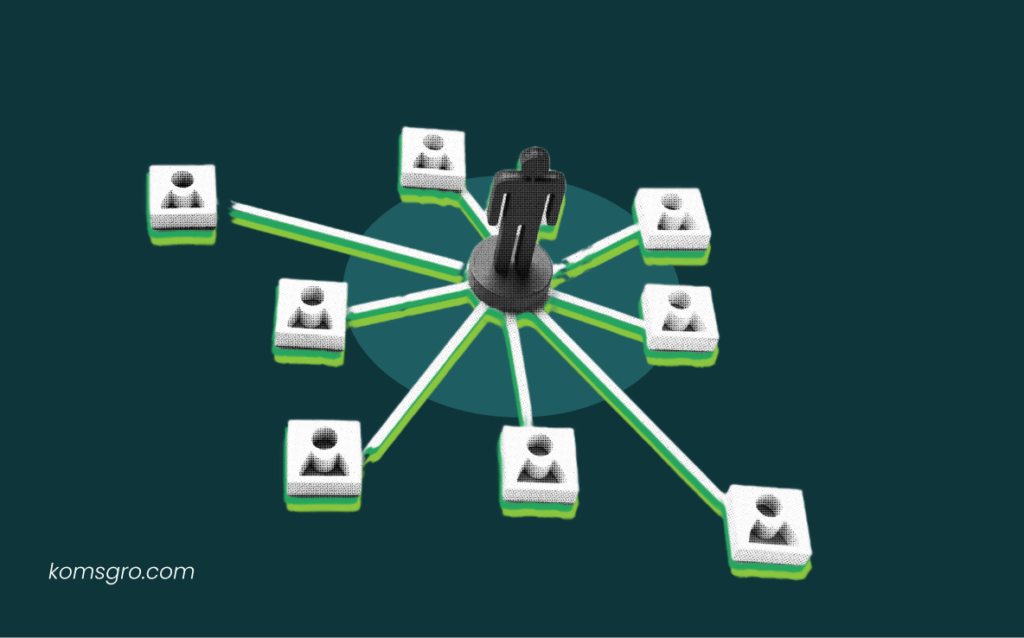In the ever-evolving landscape of digital marketing, outbound marketing advantages continue to shine brightly, offering businesses unique opportunities to reach and engage their target audience. While inbound strategies have gained popularity, the strategic benefits of outbound marketing remain undeniable, particularly for B2B companies seeking to expand their reach and drive growth. This blog post will delve into the compelling reasons why incorporating outbound marketing into your overall strategy can be a game-changer for your business.
Understanding Outbound Marketing in the Modern Era
Outbound marketing, often misunderstood as an outdated approach, has evolved significantly in recent years.
It’s no longer just about cold calls and spam emails.
Today’s outbound marketing strategies are sophisticated, targeted, and data-driven.
The Evolution of Outbound Marketing
Traditional outbound methods have undergone a digital transformation.
Modern outbound marketing leverages:
- Advanced analytics for precise targeting
- Personalisation technologies for tailored messaging
- Multi-channel approaches for comprehensive reach
This evolution has breathed new life into outbound tactics, making them more relevant and effective than ever before.
Key Advantages of Outbound Marketing
The strategic advantages of outbound marketing are numerous and impactful.
Let’s explore the primary benefits that make it an indispensable part of a comprehensive marketing strategy.
1. Immediate and Direct Impact
One of the most significant outbound marketing advantages is its ability to generate immediate results.
Unlike inbound methods that often require time to build momentum, outbound strategies can:
- Quickly reach a large audience
- Generate instant brand awareness
- Produce immediate leads and sales opportunities
This immediacy is particularly valuable for businesses looking to make a rapid market entry or launch new products.
2. Precise Targeting and Control
Outbound marketing allows for exceptional control over who sees your message and when.
This level of precision is especially beneficial in outbound marketing B2B scenarios, where:
- Specific decision-makers can be targeted
- Messaging can be tailored to industry-specific needs
- Timing of outreach can be strategically planned
Such targeted approaches significantly increase the efficiency and effectiveness of marketing efforts.
3. Measurable and Scalable Results
Another key advantage of outbound marketing is its measurability.
Modern outbound strategies provide:
- Clear metrics for campaign performance
- Easy A/B testing capabilities
- Detailed insights into ROI
This data-driven approach allows for continuous optimisation and scalability of successful campaigns.
4. Complementary to Inbound Strategies
Contrary to popular belief, outbound and inbound marketing are not mutually exclusive.
In fact, they work best when used in tandem.
Outbound tactics can:
- Drive traffic to inbound content
- Amplify the reach of inbound campaigns
- Provide quick wins while inbound strategies build momentum
This synergy creates a more robust and versatile marketing ecosystem.
Crafting an Effective Outbound Marketing Strategy
To fully leverage the advantages of outbound marketing, it’s crucial to develop a well-thought-out strategy.
Here are key elements to consider when crafting your outbound marketing strategy:
1. Define Clear Objectives
Start by setting specific, measurable goals for your outbound efforts.
These might include:
- Increasing brand awareness by a certain percentage
- Generating a specific number of qualified leads
- Achieving a target conversion rate
Clear objectives will guide your strategy and help measure success.
2. Identify and Segment Your Target Audience
Effective outbound marketing relies on reaching the right people with the right message.
To achieve this:
- Conduct thorough market research
- Create detailed buyer personas
- Segment your audience based on relevant criteria
This segmentation allows for more personalised and effective outreach.
3. Choose the Right Channels
Not all outbound channels will be equally effective for your business.
Consider:
- Where your target audience spends their time
- Which channels have historically worked well in your industry
- The nature of your product or service
Popular outbound channels include email marketing, social media advertising, and telemarketing.
4. Craft Compelling Messages
The success of your outbound marketing largely depends on the quality of your messaging.
Ensure your content is:
- Relevant and valuable to your audience
- Clear and concise
- Aligned with your brand voice
Personalisation is key – tailor your messages to resonate with each segment of your audience.
5. Implement, Measure, and Optimise
Once your strategy is in place:
- Launch your campaigns across chosen channels
- Continuously monitor performance metrics
- A/B test different elements to optimise results
Regular analysis and adjustment are crucial for maximising the effectiveness of your outbound efforts.
Learn how to create an effective outbound marketing strategy in our comprehensive guide.
Overcoming Common Challenges in Outbound Marketing
While the advantages of outbound marketing are clear, it’s important to address potential challenges:
1. Cutting Through the Noise
In a crowded marketplace, standing out can be difficult.
To overcome this:
- Focus on creating truly valuable and unique content
- Use creative approaches to capture attention
- Leverage personalisation to make your messages more relevant
2. Compliance with Regulations
Outbound marketing must adhere to various regulations, such as GDPR in Europe.
Ensure compliance by:
- Staying informed about relevant laws and regulations
- Implementing proper opt-in and opt-out processes
- Maintaining transparent data handling practices
3. Maintaining Brand Reputation
Aggressive outbound tactics can potentially harm your brand image.
To mitigate this risk:
- Focus on providing value rather than just selling
- Respect your audience’s preferences and boundaries
- Maintain a consistent and professional brand voice across all channels
Read more about how to fix issues with your outbound funnel in our recently published guide.
The Future of Outbound Marketing
As we look ahead, the future of outbound marketing appears bright and full of potential.
Emerging technologies and trends are set to enhance its effectiveness further:
1. AI and Machine Learning
Artificial Intelligence and Machine Learning are revolutionising outbound marketing by:
- Improving targeting accuracy
- Enabling predictive analytics for better timing and messaging
- Automating personalisation at scale
These technologies will make outbound strategies more efficient and effective than ever before.
2. Integration with Account-Based Marketing (ABM)
The synergy between outbound marketing and ABM is becoming increasingly apparent, especially in B2B contexts.
This integration allows for:
- Hyper-targeted outreach to key accounts
- Coordinated multi-channel campaigns
- Personalised customer journeys at an account level
3. Enhanced Data Analytics
The future of outbound marketing will be driven by more sophisticated data analytics, enabling:
- Real-time campaign optimisation
- More accurate attribution modelling
- Deeper insights into customer behaviour and preferences
These advancements will lead to more precise and effective outbound strategies.
Embracing the Power of Outbound Marketing
In conclusion, the strategic advantages of outbound marketing are clear and compelling.
From its ability to generate immediate results to its precision in targeting and measurability, outbound marketing remains a powerful tool in the modern marketer’s arsenal.
By embracing these outbound marketing advantages and integrating them with inbound strategies, businesses can create a comprehensive, effective marketing approach that drives growth and success.
As we move forward, the evolution of outbound marketing will continue to offer exciting opportunities for businesses to connect with their audience in meaningful and impactful ways.


